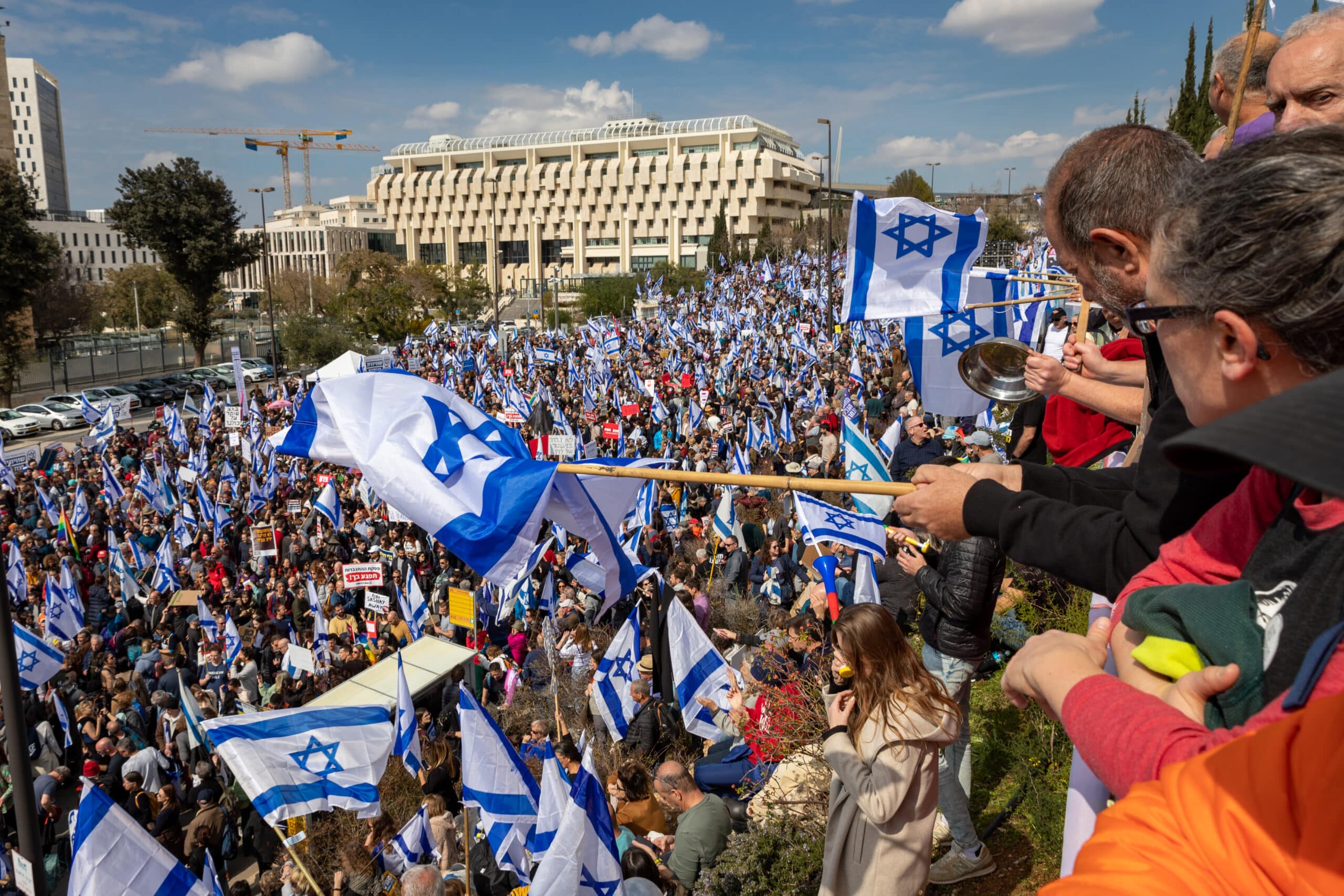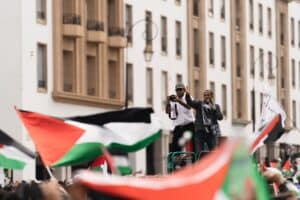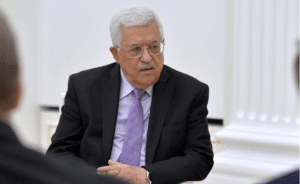Photo: Wikimedia Commons
What is happening in Israel?
On December 29, 2022, Israel’s 37th government took office, the most right-wing, anti-Palestinian, and religiously conservative cabinet in Israeli history. This cabinet, led by Prime Minister Netanyahu of the Likud party, consists of two ultra-Orthodox and three ultra-nationalist parties. Consequently, several ministers from this cabinet have expressed their desire to annex the West Bank. In addition, several Israeli ministers openly express their opposition to equal rights for women and members of the lhbtqi+ community. Unsurprisingly, this government has already caused massive discontent since taking office: from leftists to liberals, and from Palestinians to Netanyahu’s own old elite unit.
Less than a month after taking office, the first large-scale protests against this far-right government took place after it announced plans to curtail the powers of the Supreme Court. For over 30 weekends, tens of thousands of Israelis have been protesting against the Netanyahu-led Israeli government’s judicial overhaul. Concretely, these reforms are meant to limit the power of the Israeli Supreme Court.
Many fear that these reforms will make democratic culture and ‘checks and balances’ disappear and will fail to protect minority rights. Israel has no controlling institutions such as a Senate or constitution, which means that curtailing the Supreme Court is a major threat to democratic values, especially in a country where the current prime minister Netanyahu himself is under trial himself over severe fraud, bribery and breach of trust allegations. This is why many domestic and international NGOs, academics, experts, and politicians, including President Joe Biden, have been highly concerned about the Israeli government’s plans and have urged Netanyahu to reconsider the plan.
Recently, the Israeli Parliament, the Knesset, has passed the first of the judicial changes proposed by the government to prevent the Supreme Court from being able to nullify government decisions it deems unreasonable. Consequently, protests have been escalating. Roads have been blocked, protesters have been arrested, doctors have been striking, people have created human chains, protesters have been injured, thousands have camped outside of the Israeli Parliament, and army reservists have been threatening to refuse duty.
The anti-occupation bloc of the protests
The mass pro-democratic protests against the judicial reforms consist of many blocs, one of which is the anti-occupation bloc. It regularly clashes with the mainstream protesters over whether the demand to end the Israeli occupation of Palestinian territory should be included in the demonstrations. The anti-occupation bloc does not only consider the recent judicial reform laws to be a threat to Israeli democracy, but also emphasises how Israeli law “codifies racial discrimination against Palestinian citizens of Israel, and facilitates institutional privilege of Israeli Jews over Palestinians”. Furthermore, it considers the judicial overhaul and the occupation to be interconnected, as the judicial reforms can also cause further escalations within the occupied territories. Chen Alon, a leading voice in the anti-occupation bloc, says that his group is “trying to pull [the mainstream] toward acknowledging that the occupation is the central problem in Israel’s democracy.”
Considerations for the mainstream Israeli pro-democratic movement
It is highly remarkable that the judicial overhaul laws have been met with such uproar, while Israel’s many laws that subjugate and discriminate against Palestinian citizens of Israel and Palestinians living in occupied territories, rarely receive much attention. A perfect example is the ‘Jewish nation-state’ law which declares that “the right to exercise national self-determination in the State of Israel is unique to the Jewish people.” Furthermore, many argue that the motivation behind limiting the power of the justice system is to unrestrictedly give Jewish Supremacy a free hand in the occupied Palestinian territories and to further oppress Palestinains. The pro-democratic movement in Israel would be inherently contradictory by not addressing the occupation and neglecting its relevance to the principle of democracy. How can democracy and occupation co-exist? Sari Bashi, program director at Human Rights Watch rightfully tweeted: “I respect the pro-democracy protestors engaging in mass demonstrations against the further erosion of judicial independence in Israel (…) But let’s please be clear about the Israeli ‘democracy’ they are trying to protect.”
It is time for the mainstream Israeli pro-democratic movement to take an intersectional approach towards their struggle for democracy and realise how it is related to the democratic rights of Palestinians within and outside of Israeli borders. It should also uphold democratic values within its own body by making critical voices heard and reflecting on its own inclusivity. What are democratic values worth when they only apply to some? What does it take to genuinely restore Israeli democratic principles? Can there be democracy with occupation?
Written by Luna Sent



